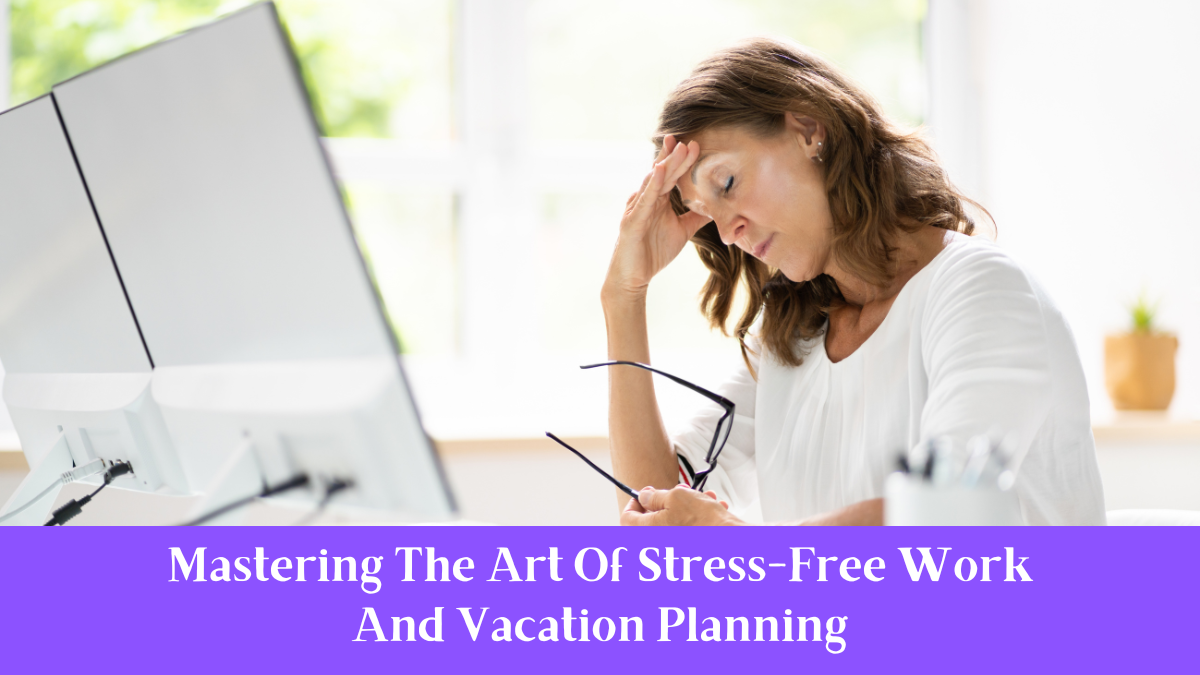A common challenge is to achieve a harmonious balance between professional obligations and personal leisure. The American Psychological Association’s 2018 Work and Well-Being survey revealed that nearly 24% of working adults experience a swift return of stress upon returning from vacation, with 40% noting the benefits last only a few days.
This underscores the importance of strategic planning to ensure that time away from work is refreshing And enjoyable.
Enhancing Mental And Physical Well-being
Regular vacations are essential for mental and physical health. They provide an opportunity to detach from work-related stressors, leading to improved mood, increased energy levels, and reduced stress. However, without proper planning, the benefits of a vacation can be short-lived.
Preventing Burnout
Continuous work without adequate breaks can lead to burnout, characterized by emotional exhaustion and decreased productivity. Scheduled vacations serve as a preventive measure, allowing individuals to recharge and return to work with renewed focus and enthusiasm.
For more information, click on the link give below:
Strategies For Stress-Free Vacation Planning
1. Plan Ahead
Planning is crucial for a seamless transition from work to vacation.
- Set Clear Dates: Determine vacation dates well in advance to accommodate work schedules and personal commitments.
- Inform Stakeholders Early: Notify supervisors and colleagues about planned time off to ensure adequate coverage and to manage expectations.
2. Delegate Responsibilities
Effective delegation ensures that work continues smoothly in your absence.
- Identify Key Tasks: List essential tasks and assign them to capable team members.
- Provide Clear Instructions: Offer detailed guidance to ensure tasks are completed accurately.
3. Set Up Communication Boundaries
Establishing clear communication boundaries helps maintain the integrity of your time off.
- Use Out-of-Office Messages: Set up automatic replies on email and other communication platforms to inform contacts of your absence.
- Limit Availability: Decide in advance whether to check emails or take calls during your vacation and communicate this to relevant parties.
4. Prepare For Your Return
A smooth return to work can alleviate post-vacation stress.
- Organize Workload: Prior to leaving, organize your tasks and set priorities for when you return.
- Schedule Buffer Time: Allocate time upon your return to catch up on emails and meetings without immediate pressure.
5. Engage In Mindful Vacation Activities
Choosing suitable activities can enhance the therapeutic effects of your vacation.
- Pursue Relaxing Activities: Engage in activities that promote relaxation, such as meditation, reading, or nature walks.
- Explore New Interests: Use the time to learn new skills or hobbies that can provide a sense of accomplishment and joy.
6. Manage Expectations
Setting realistic expectations can prevent stress during the planning process.
- Be Flexible: Not all plans may go as intended, and be prepared to adapt.
- Prioritize Well-being: Focus on activities that contribute to your relaxation and happiness.
7. Utilize Technology Wisely
Leveraging technology can aid in planning and maintaining boundaries.
- Use Planning Tools: Employ apps and tools to organize itineraries, bookings, and reminders.
- Set Digital Boundaries: Use features like “Do Not Disturb” to minimize work-related interruptions.
8. Reflect On Past Vacations
Learning from previous experiences can inform better planning.
- Assess What Worked: Identify aspects of past vacations that were enjoyable or stress-free.
- Avoid Past Pitfalls: Recognize and plan to avoid situations that caused stress or dissatisfaction in the past.
9. Communicate With Your Employer
Open communication with your employer can facilitate a supportive vacation experience.
- Discuss Workload Management: Discuss how your workload will be managed during your absence.
- Seek Support: If necessary, request assistance delegating tasks or adjusting deadlines.
10. Practice Self-Care
Prioritizing self-care during your vacation is essential for stress reduction.
- Maintain Healthy Habits: Ensure adequate sleep, balanced nutrition, and regular physical activity.
- Engage in Enjoyable Activities: Participate in activities that bring you joy and relaxation.
Balancing work responsibilities with vacation planning requires thoughtful preparation and clear communication. By implementing these strategies, individuals can ensure that their time away from work is both restorative and enjoyable, leading to improved well-being and productivity upon return.
FAQs
1. How Far in Advance Should Vacation Plans Be Made?
It’s advisable to plan vacations several months ahead to accommodate work schedules and personal commitments.
2. Is It Necessary To Check Work Emails During Vacation?
To fully enjoy the restorative effects of a vacation, it’s recommended that you set clear boundaries and avoid checking work emails.
3. How Can I Manage Workload Before Going On Vacation?
Delegate tasks set priorities, and communicate with your team to ensure a smooth transition and prevent backlog upon return.
4. What Are Some Relaxing Activities To Include In My Vacation?
Engage in meditation, reading, nature walks, or exploring new hobbies to promote relaxation and well-being.
5. How Can I Ensure A Stress-Free Return To Work After Vacation?
Organize your workload, schedule buffer time for catching up, and communicate with your employer to manage expectations effectively.




